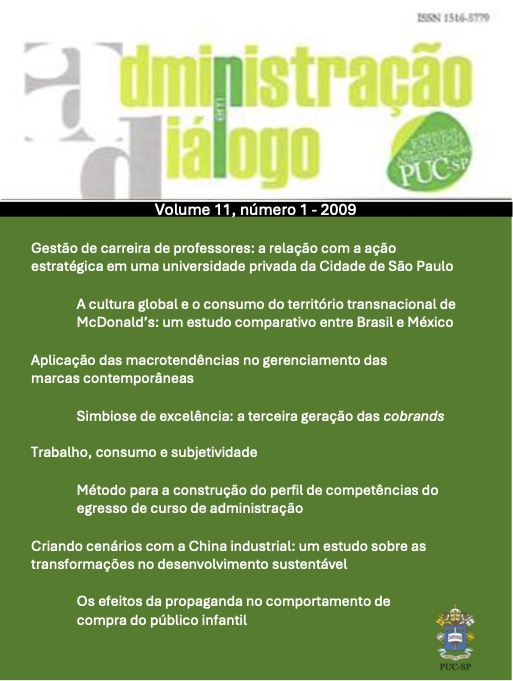TRABALHO, CONSUMO E SUBJETIVIDADE
DOI:
https://doi.org/10.20946/rad.v11i1.2725Abstract
O objetivo deste estudo é questionar alguns aspectos que envolvem a Comunicação, o Consumo e a Subjetividade a partir da ação de agente específico: o publicitário. O trabalho publicitário na contemporaneidade e de como são criadas as simbologias que o comunicam para a sociedade guarda suas origens no momento histórico do surgimento da modernidade, quando a publicidade serve-se e serve ao capitalismo. A publicidade inseriu-se com a função de comunicar a existência dos produtos. Porém, o publicitário sente que é uma mercadoria rara, de rápido consumo e prazo de validade curta. O conceito de fetiche da produção pode fazer parte da explicação. O questionamento é se o ato de tornar algo natural, ou o de tornar esse algo um fetiche, seriam as mesmas ações, porém, com conotações ideológicas diferentes. O publicitário seria, então, um sujeito que aparentemente não possui subjetividade própria, pois a recebe pronta ao consumir e se expor às suas experiências de mídia, mas ao mesmo tempo é dele exigido ser autodisciplinado para responder à retórica ideológica na variedade de papéis sociais que vive.Metrics
Downloads
Published
How to Cite
Issue
Section
License
Authors who publish in this journal agree to the following terms:
1. Authors retain the copyright and grant the journal the right of first publication, with the work licensed simultaneously under a Creative Commons Attribution License after publication, allowing the sharing of work with acknowledgment of the authorship of the work and initial publication in this journal.
2. Authors are authorized to take additional contracts separately, for non-exclusive distribution of the version of the work published in this journal (eg publish in institutional repository or as a book chapter), with acknowledgment of authorship and initial publication in this journal.
3. Authors are allowed and encouraged to publish and distribute their work online (eg in institutional repositories or on their personal page) at any point before or during the editorial process, as this can generate productive changes, as well as increase the and the citation of the published work (See The Effect of Free Access).








